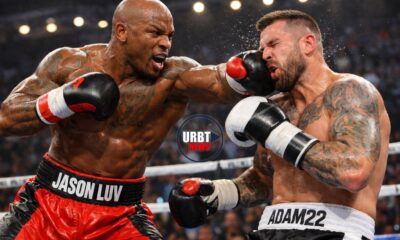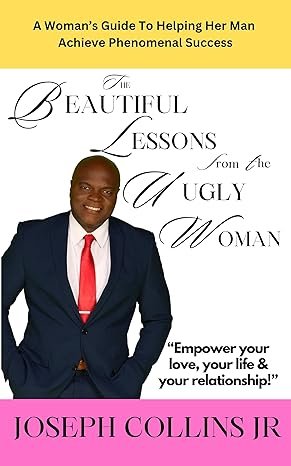Entertainment
Racism and Sexism in the Nerd & Anime Community Confronting Bias in Fandom
Published
2 months agoon
Racism and Sexism in the Nerd & Anime Community
Overview
The nerd and anime community has long been celebrated as a welcoming space for individuals who share a passion for fantasy, science fiction, comics, video games, and Japanese animation. Yet, beneath the surface of cosplay, conventions, and online forums lies a persistent problem: Racism and Sexism in the Nerd & Anime Community. This unwelcome reality forces many fans to navigate a culture that often contradicts the progressive values championed within the very stories they adore. While anime frequently showcases heroes battling injustice and overcoming oppression, a significant portion of fans finds themselves grappling with similar challenges within their chosen fandoms.
One of the most prevalent issues is the underrepresentation and misrepresentation of marginalized groups. Characters of color are often relegated to stereotypical roles or completely absent from narratives, while female characters are frequently hypersexualized or reduced to damsels in distress. This lack of diversity not only reinforces harmful stereotypes but also contributes to a feeling of exclusion among fans who do not see themselves reflected in the media they consume.
The Manifestations of Bias in Fandom
The problem extends beyond representation in media. Online forums and social media groups, which are intended to be spaces for connection and discussion, often become breeding grounds for harassment and discrimination. Fans of color, particularly Black women, frequently face racist and sexist comments, online bullying, and even death threats for expressing their opinions or simply existing within these spaces. Similarly, women in the community are subjected to constant scrutiny and judgment based on their appearance, their knowledge of specific subjects, or their perceived “authenticity” as fans.
Furthermore, the culture of gatekeeping, where self-proclaimed “true fans” attempt to exclude others based on arbitrary criteria, often intersects with racism and sexism. Individuals from marginalized groups may find their expertise questioned or their passion dismissed based on their race or gender. Racism and Sexism in the Nerd & Anime Community isn’t just anecdotal; there are countless documented examples of these biases harming people within fandoms.
Moving Towards a More Inclusive Community
Addressing Racism and Sexism in the Nerd & Anime Community requires a multi-faceted approach. First, creators and publishers must prioritize diverse representation in their works, both in terms of characters and storytelling. This means actively seeking out and amplifying the voices of marginalized creators and ensuring that their perspectives are accurately and respectfully portrayed. Second, online communities must establish and enforce clear guidelines against harassment and discrimination. Moderators should be proactive in identifying and removing offensive content, and repeat offenders should be banned from participating. Third, it is crucial to foster a culture of allyship, where fans from privileged backgrounds actively support and advocate for their marginalized peers.
This can involve challenging problematic behavior, amplifying marginalized voices, and educating oneself and others about the impact of racism and sexism. Ultimately, creating a truly inclusive nerd and anime community requires a collective commitment to dismantling systemic biases and fostering a culture of respect and understanding. The change starts with each of us making a conscious effort to challenge our own biases and actively work towards a more equitable and welcoming space for all fans.
Frequently Asked Questions
Why is there racism and sexism in the nerd/anime community?
Like any large community, the nerd/anime world reflects broader societal issues. Existing biases and prejudices can seep into these spaces, influencing interactions and representation.
What are some examples of sexism in anime?
Examples include the hypersexualization of female characters, the “damsel in distress” trope, and the underrepresentation of women in leadership or powerful roles.
How does racism manifest in the nerd community?
Racism can appear as the exclusion or misrepresentation of characters of color, online harassment targeting minority fans, and gatekeeping based on race.
What can I do to combat bias in my fandom?
Challenge problematic behavior, support marginalized creators and fans, educate yourself on issues of bias, and promote inclusivity in your online and offline interactions.
Are conventions doing enough to prevent harassment?
While some conventions are implementing anti-harassment policies and safety measures, more can always be done. Reporting mechanisms should be clear, and staff should be trained to handle incidents effectively. Active bystander intervention is also important.
Racism | Sexism | Nerd Community | Anime | Gaming | Fandom | Diversity | Inclusion | Social Justice | Bias | Discrimination | Representation | Marginalized Groups
RacismInAnime #SexismInGaming #NerdCommunity #Anime #Gaming #Inclusion #Diversity #SocialJustice #Fandom #Bias
Racism and Sexism in the Nerd & Anime Community
You may like
-


Federal Agents Kill Man in Minneapolis, Sparking National Outcry
-


Jason Luv TKO’s Adam22 in Grudge Match: A Battle of Viral Infamy
-


Men Aren’t Chasing Women Anymore: Exploring the Shift in Modern Dating
-


Rogue Elephant Kills 22 in India: Rampage Sparks Wildlife Crisis
-


Florida Ends Permanent Alimony: Understanding the New Divorce Law
-


Vice President J.D. Vance Defends ICE Amid Minneapolis Controversy


